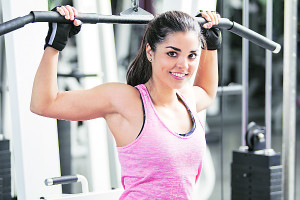
Vigorous exercise is good for almost all of the body — except perhaps the teeth, according to a new study of athletes. The study, published in The Scandinavian Journal of Medicine & Science in Sports, found that heavy training may contribute to DENTAL PROBLEMS in unexpected ways.
There have been hints in the past that athletes could have a heightened risk for cavities and other oral issues. In a study published last year in The British Journal of Sports Medicine, dentists who examined 278 athletes at the 2012 Summer Olympics in London reported that a majority displayed “poor oral health,” including high levels of tooth decay, often in conjunction with GUM DISEASE and erosion of the tooth enamel. Other studies, however, have found little if any link between consuming sports drinks and developing cavities.
So to better understand what is going on inside the mouths of athletes, researchers with the DENTAL SCHOOL at University Hospital Heidelberg in Germany and other institutions recruited 35 competitive triathletes and 35 age- and gender-matched healthy adults who were not athletes.
All of the volunteers visited the hospital’s dental lab for a full oral examination, including collection of their saliva after they had been sitting quietly. They also completed questionnaires about THEIR DIETS, including consumption of sports drinks and other beverages, their normal oral hygiene routines, and their exercise habits, if any.
Fifteen of the athletes also completed an increasingly strenuous run of about 35 minutes on an outdoor track, during which their saliva was collected several times.
Then the researchers compared the groups’ teeth and spit, which turned out to be different in telling ways.
Compared with the control group, the athletes showed significantly greater erosion of their tooth enamel. They also tended to have more cavities, with the risk increasing as an athlete’s training time grew. Over all, the more hours that an athlete spent working out, the more likely he or she was to have cavities.
The researchers found no correlation, however, between consuming sports drinks or any other elements of the athletes’ DIETS and their oral health. They also found no differences in the amount or chemical make-up of their volunteers’ saliva after the athletes and the non-athletes had been at rest.
But that situation changed when the athletes worked out. During their experimental runs, the amount of saliva that they produced progressively lessened, meaning that their mouths became drier, regardless of whether they consumed water or other beverages
during the workout. The saliva’s chemical composition also shifted, growing more alkaline as the workout continued. Excess alkalinity in saliva is thought to contribute to the development of tartar plaques on teeth and other problems.
The extent of the changes in the athletes’ saliva during a workout were something of a surprise, said Dr Cornelia Frese, a senior DENTIST at University Hospital Heidelberg, who led the study.
“We had thought sports drinks and nutrition might have the most detrimental influence on DENTAL decay,” she said, “but we saw no direct link” between them. Instead, it was the changes in saliva during exercise that differentiated the athletes’ mouths from those of the control group. Since saliva “has a very protective function” for teeth, Dr Frese said, having less of it or a chemically different version during exercise could be problematic.
But, she cautions, this study was small, short-term and in many ways unrepresentative of the oral risks most of us would likely face from exercise. “The athletes participating in our study had a mean weekly training time of nine hours,” she said. They were, in technical parlance, hard-core.
– Gretchen Reynolds




 Driving Naari Programme launched in Chandigarh
Driving Naari Programme launched in Chandigarh






























